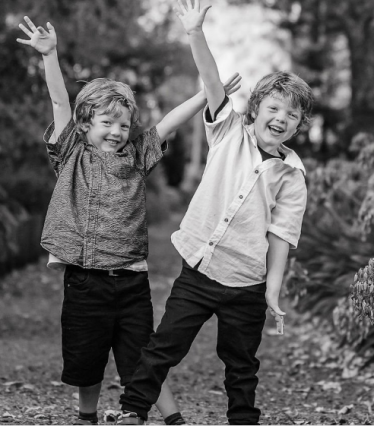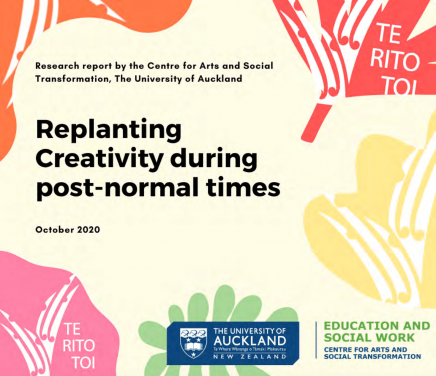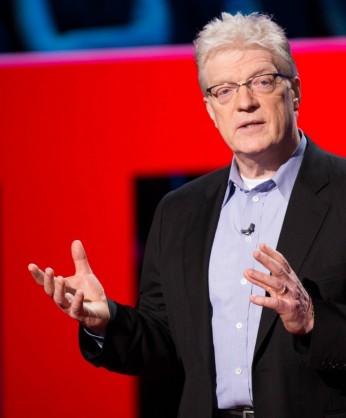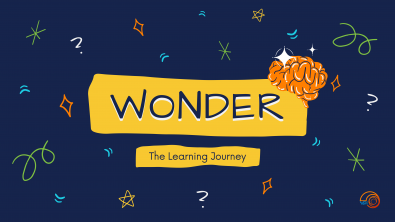 My twin boys are in bed and I’m hoping to enter a quiet space, to relax with nothing to do, watch TV, or follow a few threads on the latest news articles. However, I've got a problem. I made the mistake of clearing my emails and was captured by a research article in the EducationalHQ News. So much for a relaxing evening... I read it all at once, all 59 pages!
My twin boys are in bed and I’m hoping to enter a quiet space, to relax with nothing to do, watch TV, or follow a few threads on the latest news articles. However, I've got a problem. I made the mistake of clearing my emails and was captured by a research article in the EducationalHQ News. So much for a relaxing evening... I read it all at once, all 59 pages!
The report's results and recommendations for the future of education are incredibly reflective of my own experience and those of many other educators and students I've journeyed with. It aligns with my own vision and that of Curious Minds. I'm interested to know your response to this article.
This report encourages me to continue the work I've done over many years, it supports what I have believed and experienced to be true.
I sit writing this blog feeling constrained, cautious, yet excited by the possibilities of a brighter future for our students and education system. One I've been dreaming of and working towards for years. This feeling of hope is exactly the way it should be!
I want 'hope' in our children's hearts and for them to have the skills to thrive in today's and tomorrow's world. Every generation has its challenges to face. My boys and every other child born into this world are no different. Our job is to be present and help them find the tools that work best for them to become the people they were born to be in an ever-changing world.
I can feel my passion kick in at this point, I can get a bit ‘enthusiastic’ as my friends would say. So, before that happens, I'll give you the link to the article that provoked me to write this blog. You can read it HERE.
I would love to hear your thoughts on it. Positives, negatives, questions, anything! Everything's welcome. Email me at tala@curiousminds.ac.nz.
Written by the Centre for Arts and Social Transformation, at the University of Auckland, in conjunction with the expertise of other universities worldwide from Australia to the UK, the report identifies the state of creativity in New Zealand schools. It sings of the transformation needed in our education system in this post-modern era - the replanting of Creativity, Curiosity, Wonder, and The Arts.
They explore their data through the following lenses:
Are Schools Killing Creativity?
The Post-normal World
Implications of lost creativity for economic recovery post COVID-19
Schooling, Democracy and Creativity
Creativity, the Arts and Wellbeing
The main revelations they outlined were:
~ New Zealand schools do not actively foster or encourage creative environments to support student learning.
~ Student perceptions of their school’s creative environment meaningfully declines across time.
~ The frequency of opportunities to be curious declines throughout schooling.
~ Children are less likely to take risks with their learning as they get older.
~ By the end of secondary schooling the physical environments of schools become less creative.
~ Children in schools have little time to be playful with ideas or to engage in imaginative processes.
~ Learning increasingly becomes discipline siloed with decreasing opportunities to think and work across knowledge boundaries.
~ A correlation exists between student perceptions of creativity, enjoyment and learning.
~ There are some meaningful differences between school’s creative environments.
~ There appears to be some meaningful differences between teachers in schools using creative pedagogies impacting on enjoyment and participation levels.
Amongst these results and other inspiring and challenging pearls in its text, the report also affirms that problem-solving, critical thinking, playfulness, divergent thinking, innovation, risk-taking, and curiosity take a dramatic dive as students progress through the primary years and, especially through the senior years.
I now ask myself and ponder, how can creativity, curiosity, innovation, school enjoyment, playfulness, divergent thinking, risk-taking, and so forth, be expressed and developed through vehicles that stand alongside and are integrated with The Arts? I believe we've created a solution, and I'm so excited to share it with you!
Curious Minds and YouPlanIt stand together to explore the endless possibilities that innovation, creativity, curiosity, and wonder have to offer, and we are dedicated to making our student's learning through these means more visible, easily trackable, and set clearly against the curriculum.
Our tool, YouPlanIt, supports teachers and students to follow their curiosity within a formal learning path, and build the lifelong skills that are so important for us all to sustain a meaningful, thriving life.
At the heart of YouPlanIt is WONDER - The Learning Journey, an inquiry model for the future, which places creativity, curiosity, innovation, critical, artful thinking, and the human spirit at the centre of the adventure.
And with that, we would love to connect with you to show you the HOW and why we believe we can begin to reverse the curve!
Join us for an Introduction to WONDER webinar and receive a FREE no-planning needed creativity resource to use in your class straight away,
Keep an eye open for our next webinar for term one 2021 in your mailbox.
Would love to see you there!
Tala
& The Curious Minds Team

